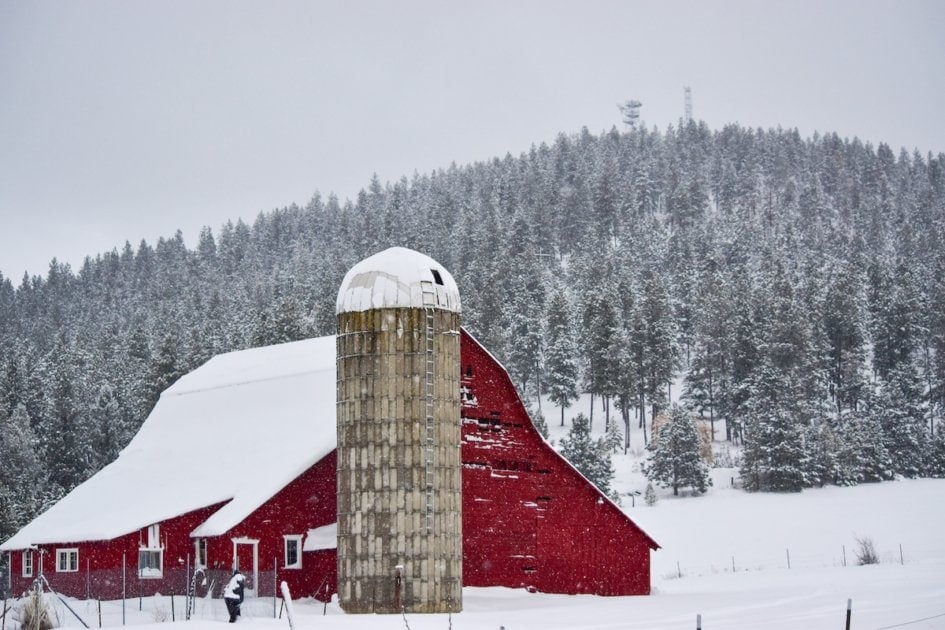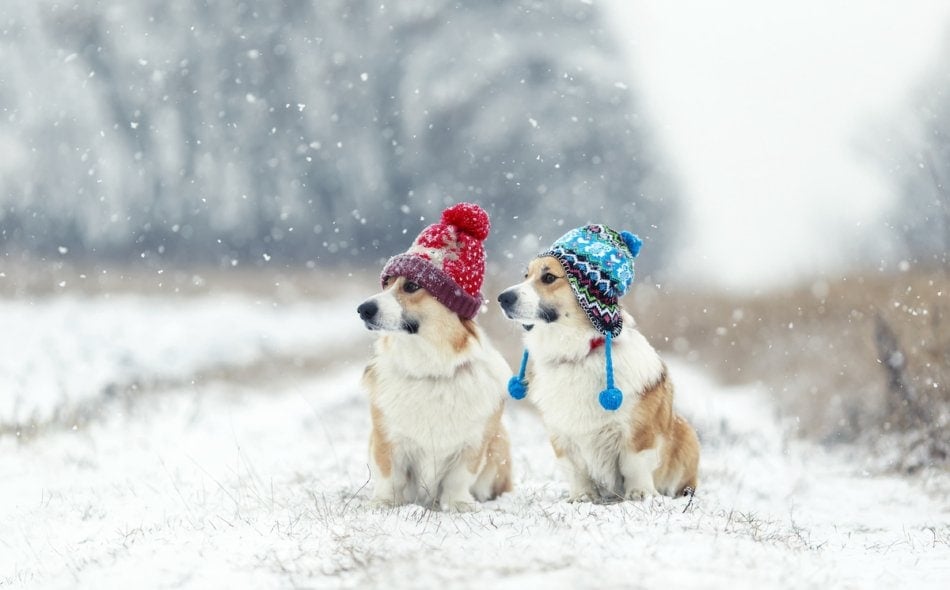December Weather Lore Sayings That Are Not All About Snow
Find out what the weather this month means for the rest of the year!

Although weather folklore exists for every part of the year, and for nearly every type of weather phenomenon, much of the body of traditional lore surrounds snow. In fact, our 20 Signs of a Hard Winter is essentially about how much snow to expect. But it turns out, there are some weather lore sayings that aren’t just about snow, even during the month of December. Sure, they’re there, but there’s much more to the lore!
Here’s a look at a small sampling of the weather lore surrounding the month of December:
December Weather Lore Sayings

Rain before Mass on the first Sunday in December means rain for a week.
On St. Thomas’s Day (December 21) the winter takes its full power.
White Christmas, green Easter. Green Christmas, white Easter.
If December is rainy, mild, and unsettled, the winter will not be harsh.
If December is cold and the earth is covered with snow, next year’s rye will be in abundance.
If there’s thunder during Christmas week, the winter will be anything but meek.
The nearer the New Moon to Christmas Day, the harder the winter.
If Christmas Day be bright and clear, there’ll be two winters in the year.
A green Christmas brings a heavy harvest.
A green Christmas makes a fat churchyard.
So many hours of Sun on Christmas Day, so many frosts in the month of May.
If the Sun shines through an apple tree on Christmas, there will be an abundant crop of apples in the coming year.
If it rains on Christmas, there will be four weeks with no sun.
The wind at the end of Midnight Mass will be the dominant wind in the coming year.
A windy Christmas is a sign of a good year to come.
If there is much wind on Christmas Day, trees will bear much fruit.
If the wind grows stormy before sunset on Christmas, expect sickness in the coming spring and autumn.
If it snows on Christmas night, there will be a good crop of hops next year.
If at Christmas, ice hangs on the willow, then clover may be cut at Easter.
Light Christmas, light wheatsheaf; Dark Christmas, heavy wheatsheaf.
A bright Christmas foretells that hens will lay well.
A dark Christmas foretells that cows will give much milk.
If St. Lucy’s Day (December 13) be bright, Christmas day will be dark with snow;
but if the snow falls on St. Lucy, Christmas will be clear and sunny.
If ice will bear a man at Christmas, it will not bear a mouse afterward.

Jaime McLeod
Jaime McLeod is a longtime journalist who has written for a wide variety of newspapers, magazines, and websites, including MTV.com. She enjoys the outdoors, growing and eating organic food, and is interested in all aspects of natural wellness.






Just wanted to know if t thunder @ lighting on 5th what that means
I live in Southern Illinois & my mother’s prediction is always useful here. She always wrote down in her ‘weather journal’ what the weather was on the first 3 days of December. This would tell what the weather would be the first 3 months of the new year. That is the weather on Dec. 1 would tell what the weather for January, Dec. 2 the weather for Feb. and Dec. 3 the weather for March.
When it says “nearer the new moon to Christmas…”, does that mean BEFORE Christmasor does AFTER Christmas count also? This year there is a new moon on 12/29 and I’m wondering if that counts.
Hi latenightlynette: Regarding “The nearer the New Moon to Christmas Day, the harder the winter” indicates the nearer it turns to the “new” phase in relation to Christmas Day so it can taken as before or after. If the new Moon occurred on the 26th, it would still count as “near Christmas Day” it would if it appeared on the 24th. Hope that helps!
years ago I had heard that what ever the date of the first snow, that is how many times it will snow that season. If it snows on the 12th, 12 snows……5th , 5 snows. Anyone else heard this? It really does work. Have been following for over 20 yrs
I’ve never heard this, but I’m glad you shared it! I’ll be keeping track this year!
Really enjoyed reading all these things! Thank you for sharing ?
what is the tradsion for st thomas day
Hi Irish, St. Thomas Day was traditionally the feast of St. Thomas the Apostle; In parts of Canada Dec. 21 was considered “pie day”, with meat pies baked for the family, then cooled and frozen. They are saved for the feast of the Epiphany, and are thawed, reheated and eaten.
MAYBELLE THEY HAD A VERY GOOD N INFORMATIVE STORY ON HERE ABOUT ST. LUCY. IT WAS A BIT DIFFERENT THAT MARCY’S. THANKS FARMERS ALMANAC FOR ALL THE GREAT STORIES . JUST LOVE READING ALL U PUT OUT !
GREAT READING KEEP UP THE NICE WORK THANK YOU
very interesting articles to read thank you
Saint Lucy is the patron saint of the blind.